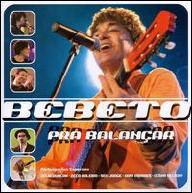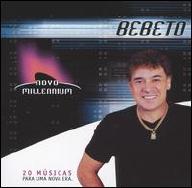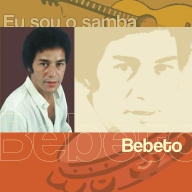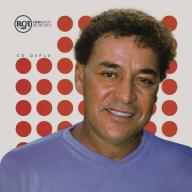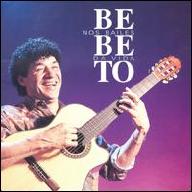Bebeto was born Roberto Tadeu de Sousa in Rio de Janeiro in 1947. He began playing guitar as a pre-teen and by the dawn of the MPB era in the mid-'60s, he was fully under its sway. He was working and living with some other young MPB devotees and writing songs that provided his first industry breakthrough. He contributed songs and guitar to Marília Medalha's 1972 album Caminhada, penned tunes for Osvaldinho da Cuíca e Grupo Vai-Vai's 1974 date Vamos Sambar, and guested on Clube do Balanço's hit full-length Swing and Samba Rock. He was signed to Copacabana based on his writing and singing, and delivered his self-titled debut in 1975. The album didn't chart, but it did receive radio play and was acclaimed by both DJs and critics. The label was in it for the long haul and promptly brought Bebeto back into the studio for Esperanças Mil, which netted the hit singles "Água, Água" and the title cut, both danceable party jams. By the time he released 1978's Cheio De Razão, his utterly clean fusion of samba and disco, soul and funk, had reached the pop charts, resulting in growing concert revenues. Unlike many Brazilian artists of the period, Bebeto's sound seemed to escape audiences outside South America. It was so rooted in beach party music and indigenous culture that he was ignored by the European press at large. Bebeto's music was an exploration of his national identity and seemed only concerned with Brazil; his global popularity began to grow during the '80s.
Between 1980 and 1984, Bebeto released a whopping eight albums, among them some of his biggest hits: Massagem and Batalha Maravilhosa (both 1981), and the massively funky, proto-electro experimentalism of Magicamente in 1984, which openly acknowledged its twin debts to the Talking Heads' squelchy Speaking in Tongues and Marvin Gaye's Midnight Love albums. Though he was almost constantly on tour, Bebeto managed to close out the decade with three more high-charting albums: 1985's Fases, 1986's Vem Me Amar, and 1989's Sorte. He wound down his release schedule during the '90s: he delivered 20 in 1991, which included the smash single "A La Louca" (broken internationally by the AM radio superstation Radio Globo). Rather than tour in support, Bebeto was burning with ideas and went right back into the studio to emerge with the glossy samba funk of Bebeto for RGB in 1992. It netted three charting singles in "Balanc¸o Da Felicidade," "Um Pouquinho de Dinheiro," and "Magia." 1995's Garra, Sangue E Raça hit the upper rungs of the album charts and was followed by 1998's sweet, sophisticated Espelho Meu. Bebeto opened the 21st century with the live Ao Vivo, produced by Marco Mazzola. Despite overly smooth charts, the singer and his band performed with drive and emotion, whipping the crowds into a frenzy -- a stadium-sized audience accompanies him with singalong choruses that actually serve to enhance the songs. A year later he emerged with the acclaimed, hard-grooving studio set Swinga Brasil that earned him the new nickname "The King of Swing." After several more comps and live offerings, Bebeto returned to studio recording for 2010's Prazer, Eu Sou Bebeto, a record celebrated by global DJs and producers on par with his catalog material. While samba rock is undergoing critical and popular reappraisals in Brazil, Europe, and even Asia, Bebeto continues to tour, selling out theaters, clubs, and festival appearances. ~ Thom Jurek, Rovi


